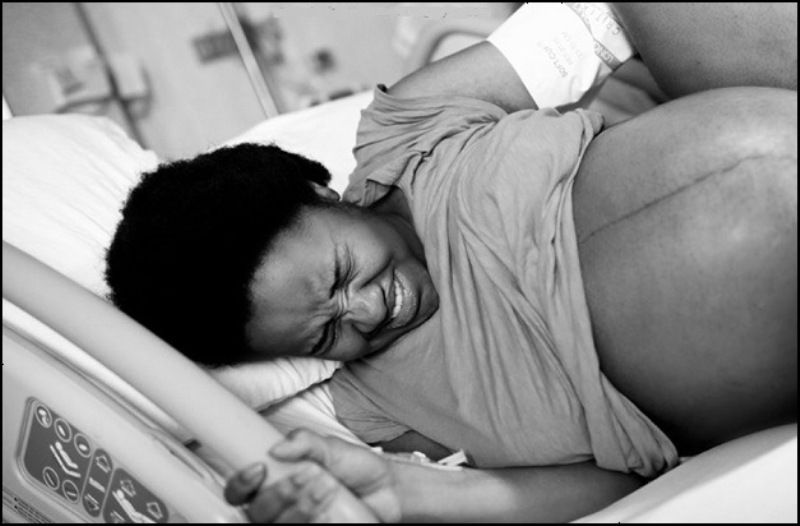A ò gbọ́hùn ìyá, a ò gbọ́hùn ọmọ – English translation: We will hear the voice of the mother, we will hear the voice of the child.
In Nigeria, this is a desperate prayer whispered every time a woman goes into labour. There’s a palpable fear in the air because anything can go wrong, and often does. Childbirth should be a moment of joy, not a potential death sentence. Yet for far too many Nigerian women, giving birth remains a life-threatening ordeal. In 2025, Nigeria holds the grim title of the most dangerous country in the world to give birth.
According to the latest data from the United Nations and the World Health Organisation, Nigeria accounts for 29% of all maternal deaths worldwide. That translates to approximately 75,000 deaths per year — one every seven minutes.
ALSO READ: If you’re pregnant, try these 3 safe sex positions
The alarming figure is a result of multiple, preventable factors, including poor healthcare infrastructure, a shortage of skilled health workers, financial barriers, and deeply rooted socio-cultural challenges. Despite slight improvements over the past two decades, Nigeria’s progress has been slow and insufficient compared to global trends.
What Makes Nigeria the Most Dangerous Country to Give Birth
1. Highest Global Share of Maternal Deaths
In 2023, Nigeria was responsible for 29% of all maternal deaths globally, leading the world in this tragic statistic. This figure represents roughly 75,000 maternal deaths in a single year, equating to one death every seven minutes. These deaths are not just numbers but stories of mothers lost to preventable causes.
2. Preventable Causes
Many maternal deaths in Nigeria occur due to conditions that are largely treatable, such as:
Postpartum haemorrhage (bleeding after childbirth)
Obstructed labour
Hypertensive disorders of pregnancy (e.g., pre-eclampsia and eclampsia)
Unsafe abortions
These issues can often be resolved with timely and skilled care that is, sadly, out of reach for many Nigerian women.
RELATED: Pregnancy Beliefs: Do safety pins really protect against evil spirits?
3. Shortage of Skilled Health Workers
In 2021, Nigeria had just 121,000 midwives for a population of over 218 million people. Less than 50% of all births were attended by a skilled health professional. To meet global standards set by the WHO, Nigeria would need an additional 700,000 nurses and midwives. This massive shortage leaves pregnant women vulnerable and contributes significantly to the high mortality rate.
4. Underfunding of Healthcare
Nigeria’s federal government spends only 5% of its national budget on health, far below the 15% target agreed upon in the 2001 Abuja Declaration. This underfunding leads to
Inadequate medical facilities
Shortage of equipment and medicines
Poor wages for health workers
Lack of affordable maternal care
Other reasons include:
Cultural and Social Barriers – Some communities rely on traditional birth attendants who may lack proper training.
High Cost of Medical Care – Most healthcare expenses are paid out-of-pocket, making it difficult for low-income families to afford safe childbirth in medical facilities.
Insecurity and Limited Access to Facilities – Widespread insecurity from terrorism, armed conflict, and banditry makes it difficult for women, especially in rural areas, to reach health facilities. It also discourages healthcare professionals from working in high-risk regions.
Slow Progress Compared to Global Trends – While maternal deaths have decreased by 40% globally since 2000, Nigeria has seen only a 13% improvement.
YOU MIGHT LIKE: Myth or Fact? Drinking cold soda can abort a pregnancy
Why Maternal Health Matters
Maternal health is a key indicator of a nation’s healthcare system and socio-economic development. When mothers survive and thrive, children are healthier, families are stronger, and communities become more resilient. Investing in maternal health is an investment in the future.
The Nigerian government must take urgent action by:
Increasing budgetary allocation to health
Recruiting and training more healthcare workers
Making maternal healthcare affordable and accessible
Launching nationwide awareness campaigns
Until these changes are made, the country’s maternal mortality crisis will persist, and thousands of lives will continue to be lost needlessly.
RECOMMENDED: Meet the youngest mother in medical history – She was 5 years old


